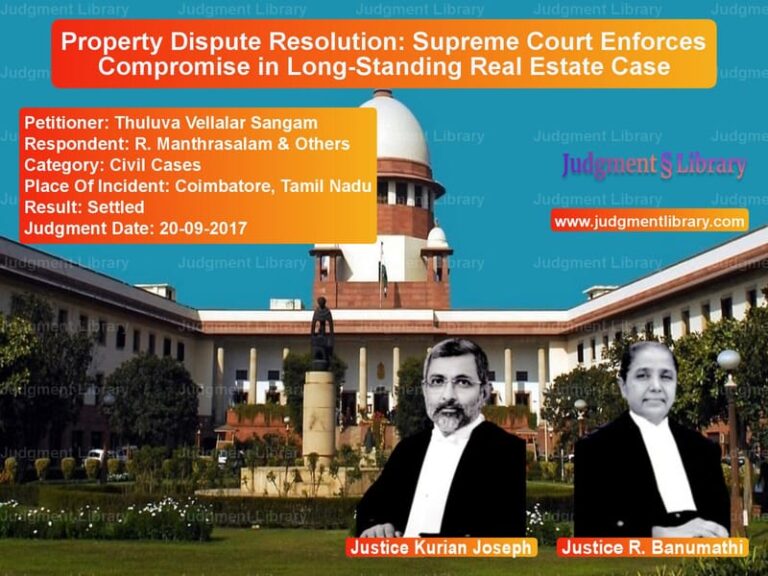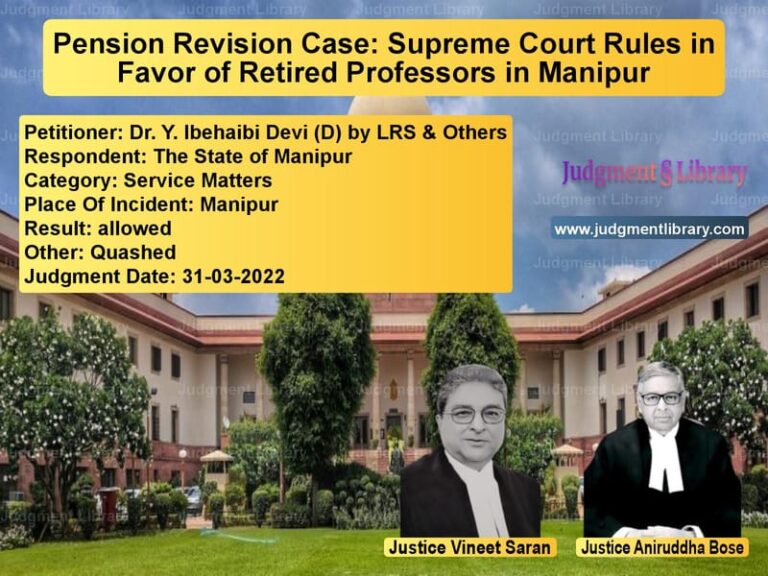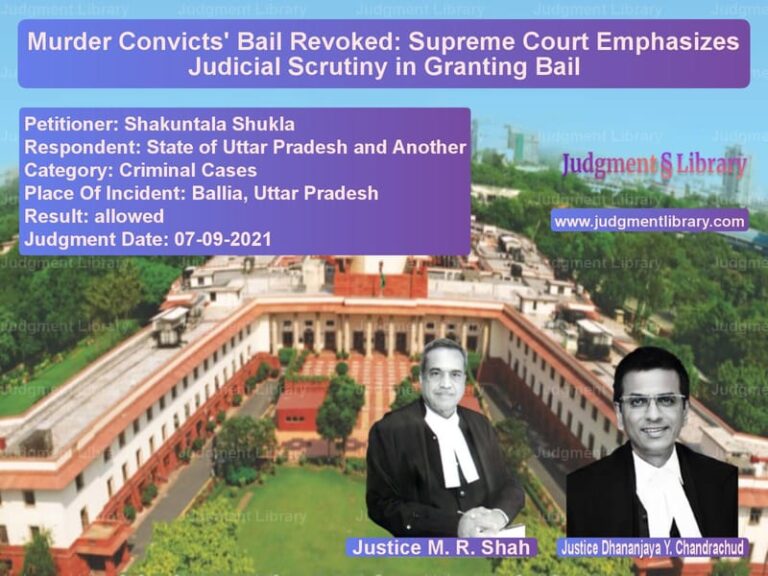Supreme Court Modifies Sentence in Dowry Harassment Case, Orders Compensation
In a significant ruling, the Supreme Court of India modified the sentence of the appellant, M. Venkateswaran, in a dowry harassment case under Section 498A IPC and Section 4 of the Dowry Prohibition Act, 1961. While upholding the conviction, the Court reduced the prison term to the period already undergone and ordered the appellant to pay a compensation of ₹3,00,000 to the complainant.
Background of the Case
The case arose from a complaint filed by Sridevi (PW-4), the wife of the appellant, alleging that she was subjected to dowry-related harassment immediately after marriage. The prosecution claimed that the appellant and his family demanded 100 sovereigns of gold from the complainant’s family and mistreated her when the demand was not met. The marriage took place on March 31, 2006, but the couple lived together for only three days.
The complainant alleged that after their wedding, her husband and in-laws verbally abused and harassed her, asking her to leave if she could not fulfill the dowry demand. She returned to her parental home and later filed a complaint on August 23, 2007. Following an investigation, charges were framed under Sections 498A, 406, 420, and 506(2) of IPC, along with Section 4 of the Dowry Prohibition Act.
Trial Court and High Court Rulings
- The 4th Metropolitan Magistrate Court, Saidapet, convicted the appellant under Section 498A IPC and Section 4 of the Dowry Prohibition Act, sentencing him to three years of imprisonment under Section 498A and one year under Section 4 of the DP Act.
- The XV Additional Sessions Judge upheld the conviction and sentence.
- The Madras High Court confirmed the conviction but reduced the sentence under Section 498A IPC from three years to two years, maintaining the one-year sentence under Section 4 of the DP Act.
Arguments by the Appellant
- The appellant argued that the case was based on exaggerated and fabricated allegations.
- He contended that he had no criminal antecedents and had already suffered three months of incarceration.
- He submitted that he was an IT professional and had expressed willingness to provide community service.
- He relied on the Supreme Court’s precedent in Samaul Sk. v. State of Jharkhand, where the Court substituted the sentence with a compensation order.
Arguments by the Respondent (State)
- The prosecution maintained that the accused persistently harassed the complainant for dowry.
- They argued that the demand for 100 sovereigns of gold and the subsequent mistreatment of the complainant were corroborated by witness testimonies.
- The State insisted that the sentence should not be reduced, as it would set a wrong precedent in dowry harassment cases.
Supreme Court’s Observations
- “The ingredients of Section 498A IPC are fully satisfied. The appellant subjected the complainant to harassment with a view to coercing her to meet the unlawful demand for gold sovereigns.”
- “While dowry harassment is a serious issue, the facts of this case indicate that the couple was married for only three days, and the complainant has since remarried and settled abroad.”
- “Given that the case has been prolonged for 19 years, and both parties have moved on, a balance must be struck between punishment and rehabilitation.”
- “Considering the appellant’s background as an IT professional, he should be allowed to contribute to society rather than remain incarcerated.”
Final Judgment
- The Supreme Court modified the sentence and ordered the appellant to undergo imprisonment for the period already served.
- The appellant was directed to pay ₹3,00,000 to the complainant as compensation.
- Failure to deposit the compensation within four weeks would result in the appeal being dismissed and the appellant having to serve the remaining sentence.
Conclusion
The Supreme Court’s ruling strikes a balance between punishing dowry harassment and ensuring fair sentencing. By substituting a part of the punishment with compensation, the judgment acknowledges the lengthy litigation period and provides relief to both parties.
Petitioner Name: M. Venkateswaran.Respondent Name: The State Represented by the Inspector of Police.Judgment By: Justice K.V. Viswanathan, Justice S.V.N. Bhatti.Place Of Incident: Chennai, Tamil Nadu.Judgment Date: 24-01-2025.
Don’t miss out on the full details! Download the complete judgment in PDF format below and gain valuable insights instantly!
Download Judgment: m.-venkateswaran-vs-the-state-represente-supreme-court-of-india-judgment-dated-24-01-2025.pdf
Directly Download Judgment: Directly download this Judgment
See all petitions in Bail and Anticipatory Bail
See all petitions in Dowry Cases
See all petitions in Judgment by K.V. Viswanathan
See all petitions in Judgment by S.V.N. Bhatti
See all petitions in partially allowed
See all petitions in Modified
See all petitions in supreme court of India judgments January 2025
See all petitions in 2025 judgments
See all posts in Criminal Cases Category
See all allowed petitions in Criminal Cases Category
See all Dismissed petitions in Criminal Cases Category
See all partially allowed petitions in Criminal Cases Category







